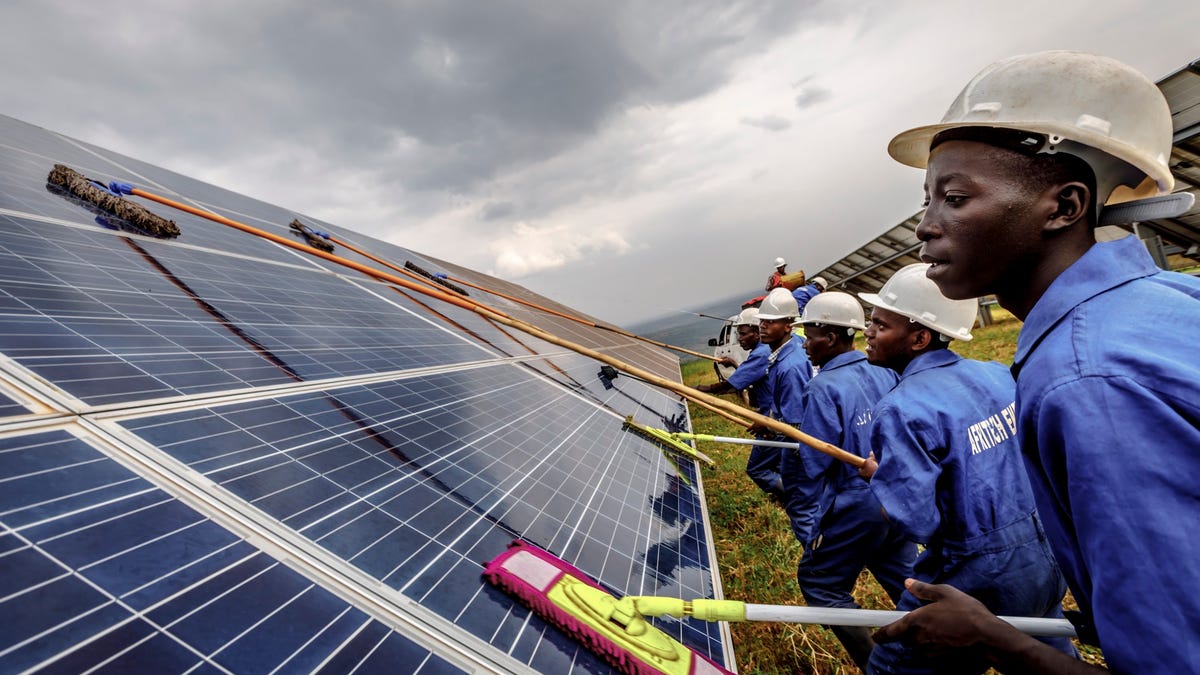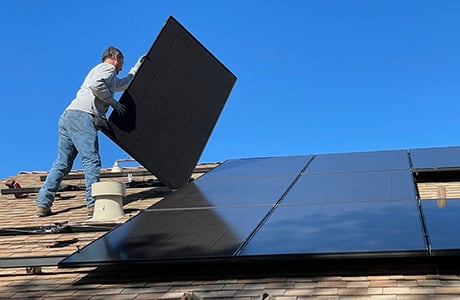How to Choose the Right Solar Power Installation for Your Power Needs
Choosing an appropriate solar power setup requires a methodical approach that begins with a clear understanding of your energy consumption patterns and awaited future needs. Factors such as the type of solar modern technology, installment prices, and readily available incentives play pivotal roles in making an informed choice.
Assess Your Power Needs
Examining your energy needs is a critical initial action in the solar power installation process. Recognizing your existing and future energy consumption will certainly assist the layout of an efficient solar system tailored to your requirements.
Take into consideration seasonal variants in energy intake, as particular months may demand more power due to home heating or air conditioning needs. Furthermore, review any planned changes in way of living or building, such as the acquisition of electric automobiles or home growths, which may raise your energy needs in the future.
As soon as you have a comprehensive understanding of your power usage, you can establish the ideal solar capacity needed to satisfy those requirements. This analysis not just aids in sizing the solar installment but likewise notifies choices regarding energy storage space remedies and possible grid link requirements. solar photovoltaic. Ultimately, properly evaluating your power requires makes sure that your solar energy system runs effectively, providing the benefits of sustainable energy abreast with your usage patterns

Evaluate Solar Technology Options
When considering a solar energy installment, it is important to assess the numerous solar innovation options offered to ensure the system straightens with your power requirements and spending plan. The main modern technologies consist of monocrystalline, polycrystalline, and thin-film solar panels, each offering distinct benefits and downsides.
Monocrystalline panels are known for their high efficiency and performance in limited space, making them appropriate for domestic installments with much less roof covering area. Nonetheless, they have a tendency to be much more costly. Polycrystalline panels, while slightly much less reliable, are generally much more budget friendly and can be a good option for bigger installments where room is not a restraint. Thin-film solar panels are lightweight and versatile, optimal for unusual surfaces, but they typically have reduced efficiency and require more area to produce the exact same power result.
Along with panel kinds, take into consideration solar inverters, which transform the straight existing generated by the panels into alternating existing for home usage. String inverters, microinverters, and power optimizers each have one-of-a-kind benefits that can affect system performance. Examining these choices will certainly help you make an informed decision that satisfies your power requirements effectively.
Think About Setup Prices
Understanding installment expenses is vital for any person taking into consideration a solar power system. These prices can differ dramatically based on several variables, consisting of system size, sort of panels, and installment complexity. A regular domestic solar setup might vary from $15,000 to $30,000 prior to motivations, which can be a substantial upfront investment.
To accurately evaluate installment prices, it is important to get detailed quotes from numerous solar service providers. These quotes should damage down the expenses of equipment, labor, allows, and any kind of added accessories needed for the installment. Pay attention to the quality of products being supplied, as higher-quality panels and inverters can cause better effectiveness and longevity, possibly countering greater first expenses.
Additionally, take into the original source consideration the long-lasting ramifications of installation costs. A cheaper installment may conserve cash in advance but can result in higher upkeep costs or lowered energy manufacturing in time. It is likewise recommended to assess funding choices, such as solar fundings or leases, which can influence your overall financial commitment.
Research Study Local Rewards
Exploring regional incentives can substantially influence the total my sources cost of a solar energy installation. Many regions offer a variety of economic rewards targeted at advertising sustainable energy use, making solar power more accessible and inexpensive for homeowners and organizations alike.
These incentives may include federal tax credits, state rebates, and neighborhood energy firm programs that give cash rewards or internet metering options. For example, the Federal Financial Investment Tax Credit Report (ITC) allows you to deduct a significant percentage of your solar installment prices from your federal tax obligations. State-specific incentives can additionally improve these cost savings, frequently in the type of direct cash discounts or tax obligation debts.
In addition, some city governments may use real estate tax exceptions for solar installations, ensuring that your financial investment does not boost your residential property tax liability. Researching these motivations can discover considerable cost savings, which can affect your choice check it out on the size and kind of solar system to mount.

Choose a Reputable Installer
Choosing a trusted installer is crucial to making certain the success and durability of your solar power system. The setup procedure dramatically influences the performance and performance of your photovoltaic panels, making it imperative to pick a professional with a tested record. Begin by investigating regional installers with on-line reviews and testimonies. Web sites such as the Better Company Bureau can supply insight right into consumer complete satisfaction and solution reliability.
Following, confirm the installer's credentials, consisting of licenses, certifications, and insurance policy. A credible installer ought to hold certifications from acknowledged organizations, such as the North American Board of Licensed Power Practitioners (NABCEP), suggesting a high level of know-how. Furthermore, inquire about the installer's experience with comparable projects, especially in your area, as regional climate and policies can affect installment methods.
Request several quotes and compare them not just on rate however additionally on the high quality of devices and service warranties offered. A reliable installer must offer clear information concerning their services and products, assisting you make a notified decision. By spending time in choosing a reliable installer, you will enhance the overall effectiveness and durability of your solar energy system.
Final Thought
To conclude, picking the proper solar power installation necessitates an extensive analysis of energy requirements, an understanding of available solar technologies, and a careful consideration of installation expenses. Investigating local incentives can enhance financial advantages, while picking a credible installer ensures quality craftsmanship and dependability. solar photovoltaic. By carefully analyzing these variables, people can achieve an optimum solar solution that meets both current and future power needs, ultimately adding to lasting power methods and price financial savings with time